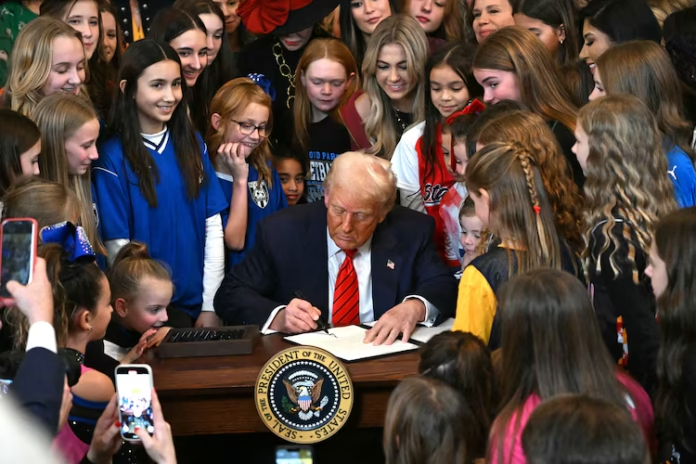The National Collegiate Athletic Association (NCAA) board of governors recently voted to update its participation policy for student-athletes, following an executive order signed by former President Donald Trump banning transgender athletes from competing in women’s sports. The new policy stipulates that only student-athletes assigned female at birth will be permitted to compete in women’s sporting events. However, male-assigned at-birth athletes will still be allowed to practice with women’s teams and receive benefits like medical care while training.
Under the updated policy, athletes undergoing hormone therapy, such as testosterone, are also barred from competing in women’s events. This restriction could affect athletes who may not identify as transgender but have testosterone in their systems for medical reasons, such as those prescribed for bone density or muscle mass.
The policy change is a direct response to Trump’s executive order, which was a key aspect of his 2024 campaign, aimed at excluding transgender women from women’s sports. This order adds to a broader set of executive actions impacting the transgender community, including restrictions on military service, gender-affirming medical care for minors, and the use of nonbinary gender markers on federal documents.
NCAA President Charlie Baker, in Senate testimony in December 2024, noted that fewer than 10 transgender athletes were competing in NCAA sports out of more than 500,000 participants. He emphasized that the new policy aims to create clear and consistent eligibility standards for student-athletes, offering a uniform national policy to counter the confusion caused by varying state laws and court decisions.
The updated policy, which is effective immediately, applies to all student-athletes, regardless of their eligibility status under previous NCAA rules. Baker stated that the move ensures a consistent approach to participation, in line with Trump’s national standard.





